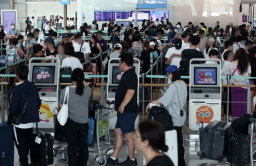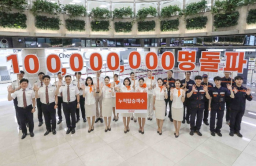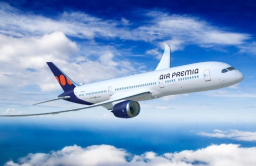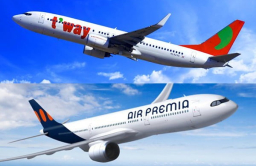-
KOSPI 2577.27 -2.21 -0.09%
-
KOSDAQ 722.52 -7.07 -0.97%
-
KOSPI200 341.49 +0.02 +0.01%
-
USD/KRW 1396 -2.00 0.14%
Budget carriers turn around with highest-ever profits in Q2
Airlines
Budget carriers turn around with highest-ever profits in Q2
S.Korea’s four major budget carriers surpass their break-even points and are preparing air route expansions to Southeast Asia
By
Aug 08, 2023 (Gmt+09:00)
2
Min read
News+
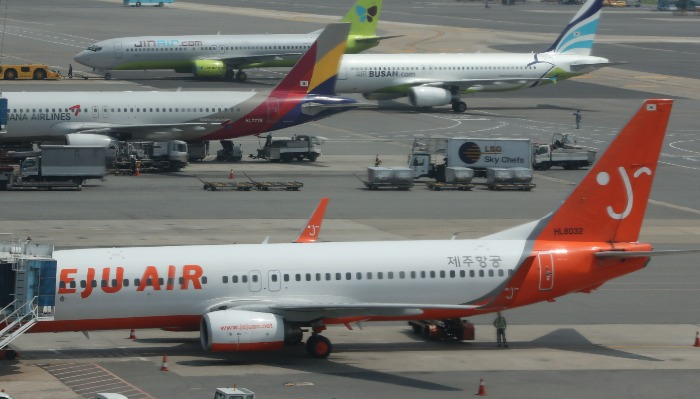
South Korea’s low-cost carriers (LCCs) posted their highest-ever quarterly profits on the back of a surge in international travel as the industry is recovering from the pandemic-hit slump.
Flights to and from Japan and Southeast Asia boosted their second-quarter earnings above the sector’s break-even points, into the 7-8% range.
The country’s largest LCC Jeju Air Co. on Tuesday said its second-quarter revenue tripled to 369.8 billion won ($281 million) from a year before. It swung to an operating profit of 23.1 billion won in the same period versus a shortfall of 55 billion won the year prior.
Air Busan Co. and Jin Air Co., majority owned by South Korea’s flag carrier Korean Air Lines Co. posted their record-breaking profits and revenue in the second quarter as well.
Jin Air turned to the black with an operating profit of 17.8 billion won in the April-June quarter. Its revenue doubled to 259 billion won over the same period.
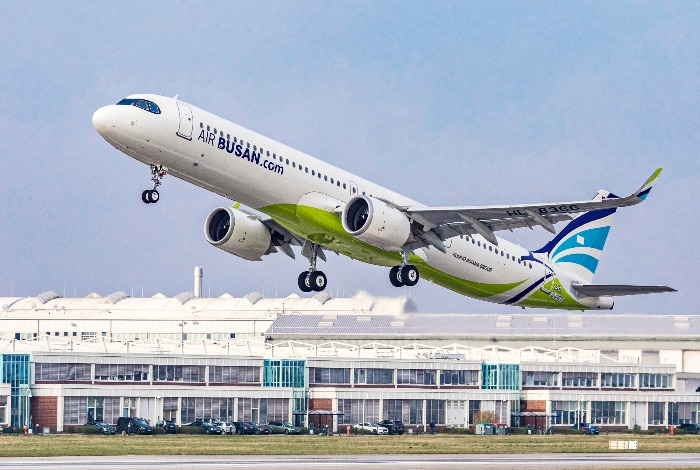
Air Busan made a turnaround with an operating profit of 33.9 billion won. Its revenue skyrocketed 136% on-year to 198.3 billion won in the second quarter.
Among the four domestic LCCs, the Busan-based carrier reported the highest quarterly profit. Its profit margin of 17% is nearly three times the average 6% of the three other LCCs.
T’way Air Co. swung to an operating profit of 19.6 billion won in the second quarter. Its revenue more than tripled to 286.1 billion won.
The four major LCCs in South Korea saw 85.3% of their international passenger seats, or 3.9 million seats, filled in the second quarter combined.
In the first half of this year, they sold 87.9% of their passenger seats offered for international routes, or 8.1 million seats.
They are expected to sustain earnings growth in the current quarter, the summer holiday season. Airlines tend to make about half their annual earnings in the third quarter.
In line with growing travel demand, domestic airlines are scurrying to increase flights and expand air routes.
South Korea’s most popular international flight route in the first half of this year was between Incheon International Airport and Kansai International Airport in Osaka, Tokyo, according to South Korea’s transport ministry.
Write to Mi-Sun Kang at missuny@hankyung.com
Yeonhee Kim edited this article
More To Read
-
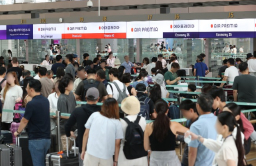 Travel & LeisureS.Korea's No. 1 flight route in 2023 is Incheon-Osaka
Travel & LeisureS.Korea's No. 1 flight route in 2023 is Incheon-OsakaAug 07, 2023 (Gmt+09:00)
-
Aug 04, 2023 (Gmt+09:00)
-
Jul 03, 2023 (Gmt+09:00)
-
Jul 03, 2023 (Gmt+09:00)
-
Jun 05, 2023 (Gmt+09:00)
-
May 24, 2023 (Gmt+09:00)
-
May 23, 2023 (Gmt+09:00)
-
May 08, 2023 (Gmt+09:00)


